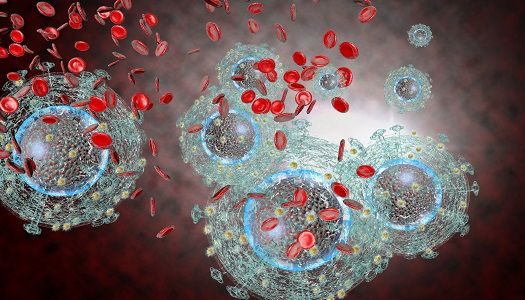Article
Costlier, Riskier Treatment Tests Better For HIV-related Infection Care
Author(s):
A study compares 2 popular induction therapy methods for talaromyces marneffei infection in HIV patients.

A comparative study of 2 human immunodeficiency virus (HIV)-related infection treatments concluded that the costlier, limited drug is more effective and safe.
Talaromyces marneffei infection, a major cause of HIV-related death in the southeast Asia region, is present in about 10% of acquired immune deficiency syndrome (AIDS) patients in Hong Kong, and about 30% of AIDS patients in northern Thailand.
It is prominently treated with antifungal medication early into diagnosis. Though reports show a 30% mortality rate in patients treated with antifungal therapy, no previous studies comparing induction therapy methods for the condition were available.
In an open-label, noninferiority trial, an intravenous (IV) therapy and an oral drug were compared for their treatment of talaromycosis in HIV-infected adults.
A team of researchers led by Thuy Le, MD, randomly assigned 440 HIV patients with talaromycosis to receive either IV amphotericin B deoxycholate (amphotericin), or oral itraconazole capsules, for 11 days’ treatment.
The 219 patients assigned to amphotericin treatment were given .7 to 1 mg per kg of body weight daily. The 221 patients assigned to itraconazole were given 600 mg dosage for 3 days, followed by 400 mg per day. After the split treatment period, all patients were given maintenance therapy with itraconazole.
The primary outcome of the trial was all-cause patient mortality at week 2, with secondary outcomes including all-cause mortality at week 24, the length of time to talaromycosis resolution, early fungicidal activity, relapse of infection, development of the immune reconstitution inflammatory syndrome (IRIS), and side effects.
At week 2, the risk of death in amphotericin patients was 6.5%, versus 7.4% in itraconazole patients. By week 24, the amphotericin group’s risk of death only raised to 11.3%, while the itraconazole group’s risk of death reached 21%.
Additionally, amphotericin patients reported significantly faster clinical resolution, fungal clearance, and lower rates of relapse and IRIS than its treatment counterpart, according to the study. But the IV treatment also resulted in greater rates of reactions — mostly infusion-related, such as renal failure, hypokalemia, hypomagnesemia, and anemia.
These adverse events were unsurprising for the nature of the IV treatment, researchers noted, and few were classified as serious adverse events. The toxic effects of the infusion-related treatment often result in close monitoring and in-hospital care, according to the study. That’s supplanted by amphotericin’s status as the less-available drug in the Asian market.
“In Vietnam, a 2-week course of amphotericin costs approximately $350 (in U.S. dollars), excluding the costs of hospitalization and laboratory monitoring,” researchers wrote. “In contrast, itraconazole is associated with fewer unacceptable side effects, is widely available, is available in oral form, and costs one seventh the price of amphotericin.”
Researchers referenced “large, retrospective case series from China, India, and Vietnam” that note itraconazole is the most commonly used treatment for talaromycosis.
Despite this, researchers concluded the superior induction therapy for HIV-associated talaromycosis is the more exclusive amphotericin.
The study, "A Trial of Itraconazole or Amphotericin B for HIV-Associated Talaromycosis," was published online on The New England Journal of Medicine on June 15.
Related Coverage
New Test Can Detect Latent HIV Cells
Investigational Drug for Opioid Disorder Meets Primary and Secondary Endpoints in Phase 3 Trial
HIV Treatment Adherence Improving, but Only in Certain Groups
2 Commerce Drive
Cranbury, NJ 08512
All rights reserved.





